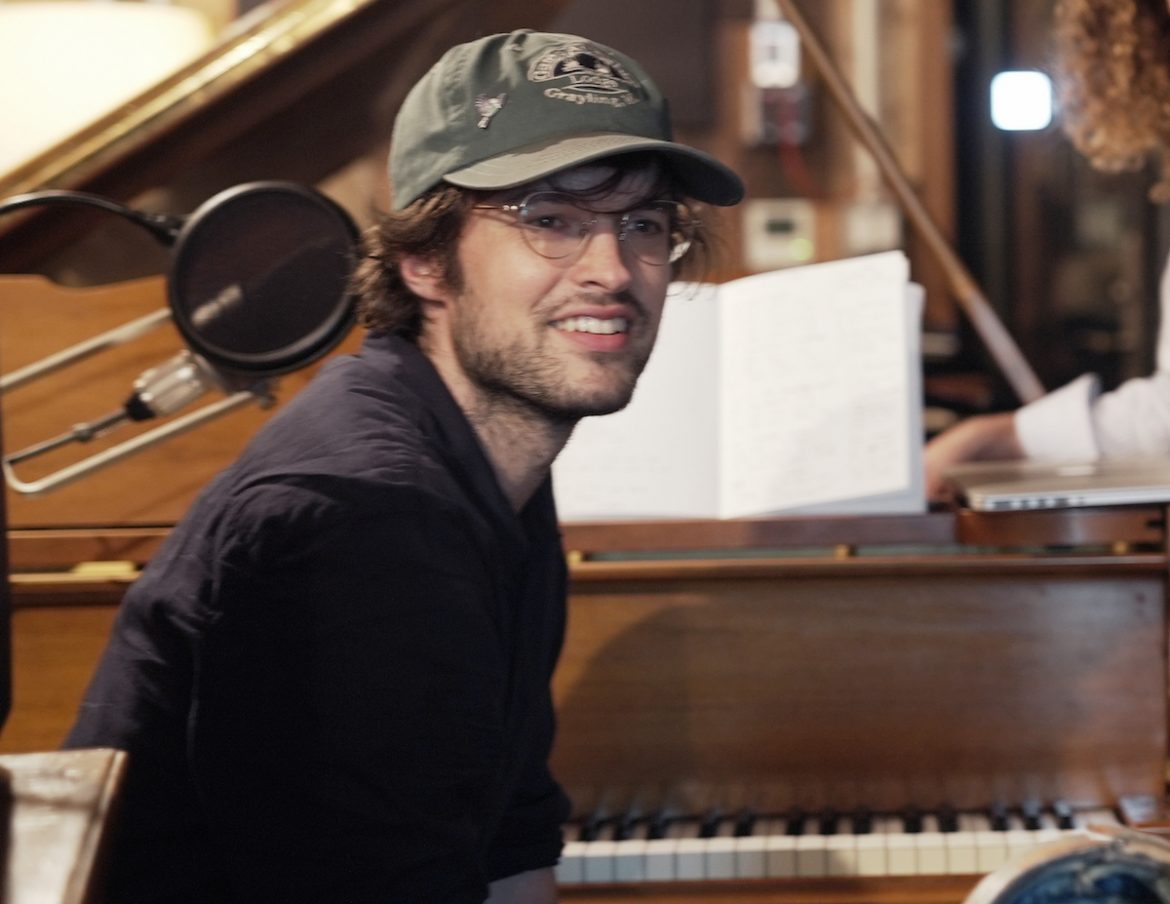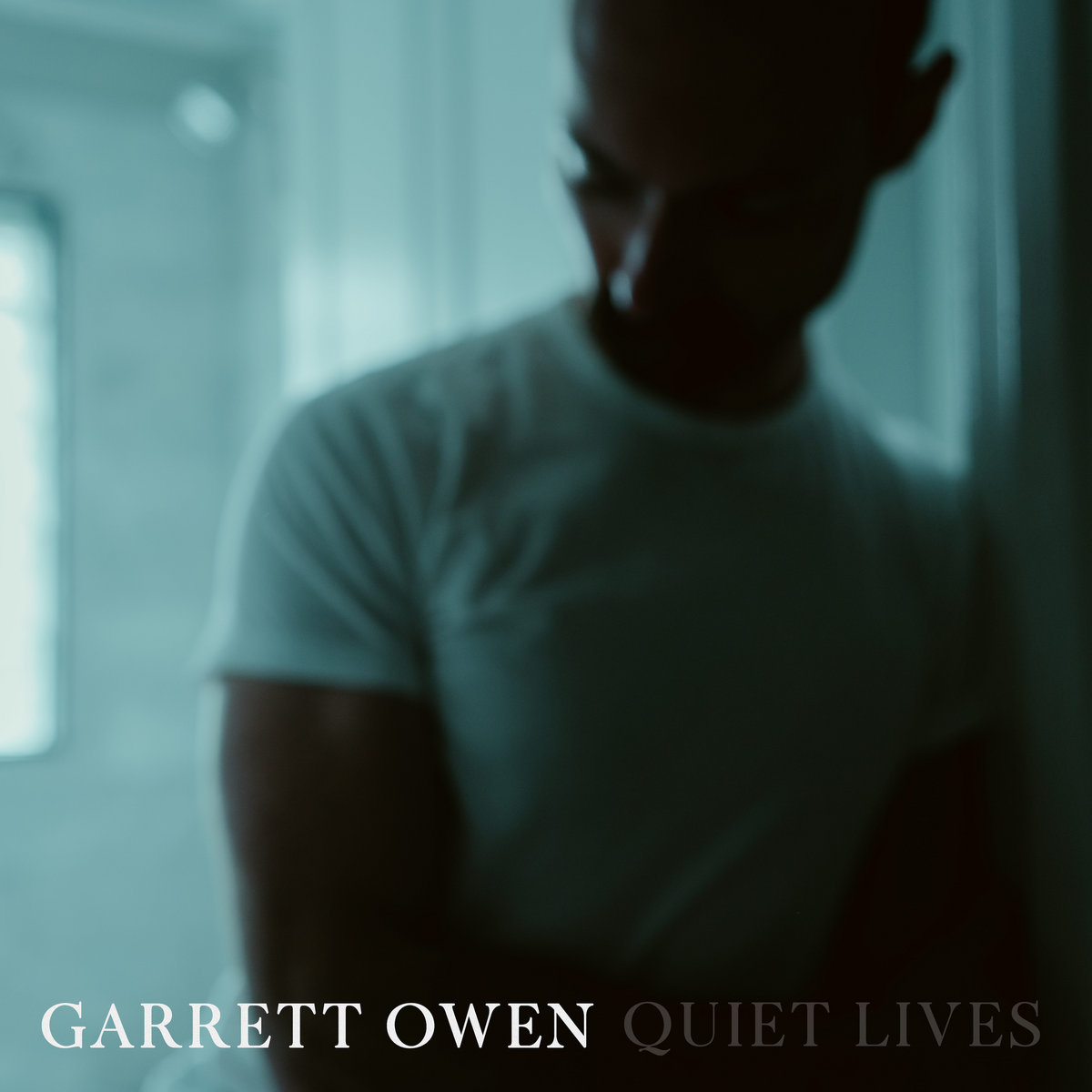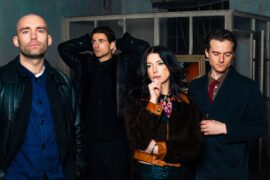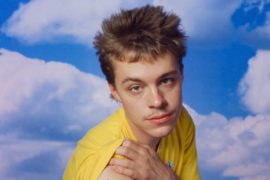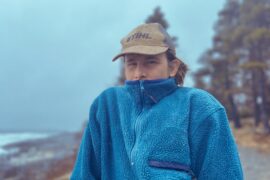Young Jesus’ John Rossiter dissects the influences in his newest album ‘Shepherd’s Head,’ and speaks on the ways making music with his friends helped him process grief during the pandemic.
Stream: ‘Shepherd Head’ – Young Jesus
It’s very normal to lose people, and that’s okay, and it’s a beautiful thing. It’s complicated.
The band Young Jesus has been evolving from its inception.
It started with high school friends, deeply enmeshed in Chicago’s midwestern emo scene, rubbing shoulders with young up-and-comers like Petey. The band, going through iterations of members, transitioned to Los Angeles in 2014. They hit their stride with three full-length albums from Saddle Creek Records before much of the group amicably parted to pursue other creative avenues. John Rossiter, the sole member of Young Jesus’s current lineup, produced his recently released album Shepherd’s Head with minimal equipment, methodically piecing it together over more than a year.
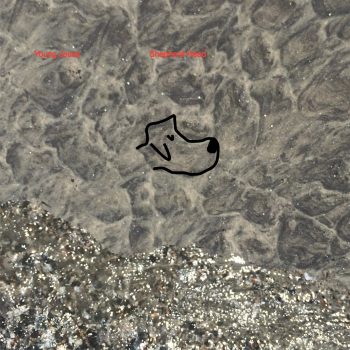
Rossiter spoke with me on the day before he left for a national tour. What becomes apparent in the conversation, is the depth of thought that goes into his music. He’s among the class of autodidactic LA transplants that have contributed thoughtful, playfully ironic, sometimes melodramatic voices to the national music scene. Every track on the new record is intensely personal, as Rossiter samples sound clips from his own life, and features his friends (recorded in his bathroom). Whether or not this is the next stage in the natural succession of independent music, Shepherd’s Head will forever be a document that captures the beautiful, normal, complicated love and loss that Rossiter felt towards his community of friends during the lockdown and beyond.
— —
:: stream/purchase Shepherd Head here ::
A CONVERSATION WITH YOUNG JESUS
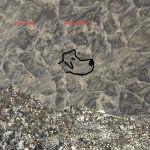
Atwood Magazine: This new album is obviously so different from Welcome to Conceptual Beach, or any of your other albums. What led to your decision to put this together in the way that you did, on your computer with a microphone?
John Rossiter: I made this album because I think it was a step I needed to take as a person – to put myself out there in a very straightforward and vulnerable way. The past three Young Jesus albums I’m really proud of. But they do create, I think, a little bit of an edifice. Like, if you get it, you really get it, and you connect deeply. But if you don’t get it, I think there’s this feeling of ‘I might just not be smart enough or know the right kind of music to get into this.’
I think there’s a beauty to that because we created this world, the four of us, and we kind of protected each other with it. We found these really far-out modes of expression that we came to feel were very beautiful and very important for us and especially for me, and my soul.
With Shepherd Head, I think it was time to strip some of that back and make myself more open to receive, whatever it might be, whether that’s a failure or a success. Both usually happen at the same time when you release a record. But to me, this one is sonically and vocally more vulnerable.
Recording it on GarageBand, with what I had on me, was also dictated by circumstance. It was lockdown, and I have to make music. So it sort of flowed into that space. And I found out that I could make something interesting out of these constraints. So yeah, I think it is what every Young Jesus record is–a document of where I or the band is at, in a certain moment.
I know you recruited friends like Freddie Avis and Sarah Beth Tomberlin, how did you decide on these two artists to be on your tracks?
John Rossiter: Freddie’s a neighbor and our dogs like each other. We talked about music one day and he was like, “let me send you a track.” And I thought it was beautiful. He’s a perfectionist, and so I thought This will be great. I’m the opposite of that. I’ll completely fvck it up and probably make something nice out of it.
With Sarah Beth, we’ve just been friends for a while and she was the only musician I played with during lockdown. We would share songs and talk a lot about music. She just came over one day and I was like, “You want to try singing on this thing?” So we turned the lights off in the bathroom and she set up in there and recorded vocals.
There’s this great moment in Gold Line Awe where you can hear her laugh. And that’s one of my favorite moments because it’s like a moment of pure joy where she just made up that melody and was laughing at how good and fun it is, which is like the best thing to capture on an album.
Marcel, the old bassist of Young Jesus, played bass on “Ocean” which has that really amazing lead at the end. Kern, the drummer, mixed the album. Just natural, easy partnerships.
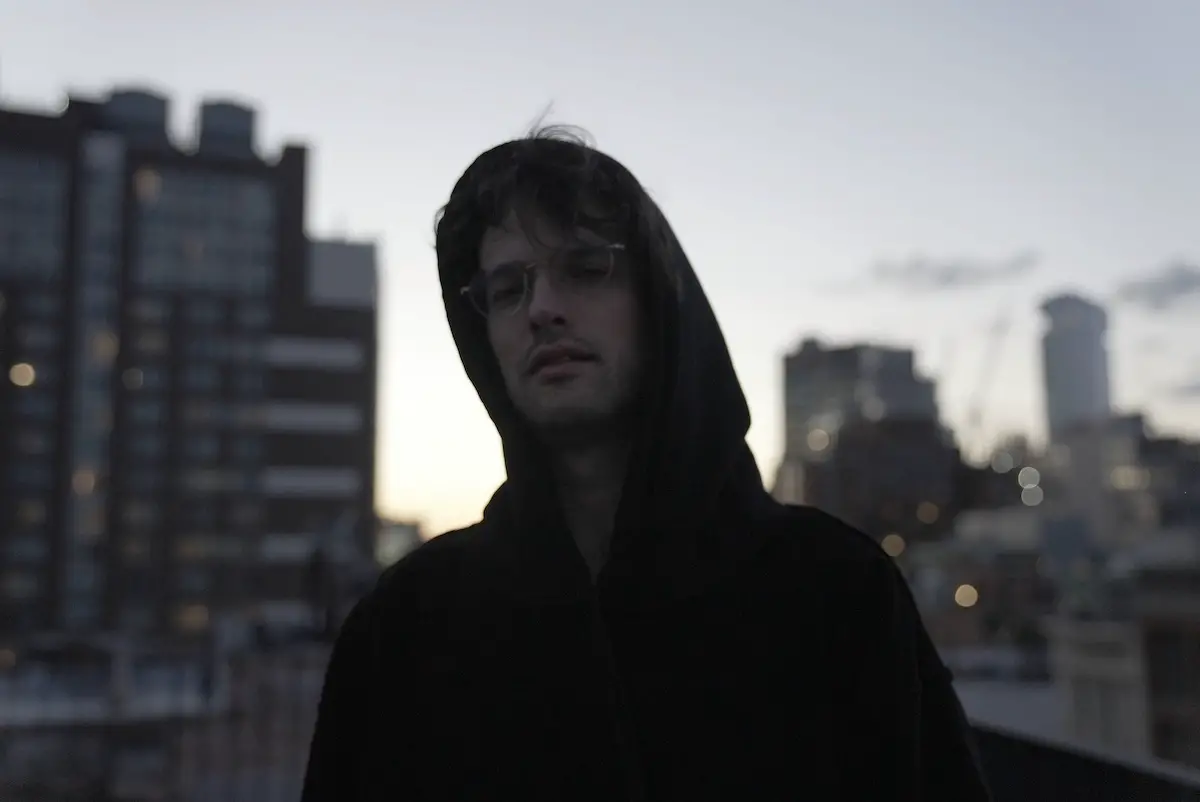
You're playing with Petey for some of your tour, right?
John Rossiter: Yeah for most of it. Pete’s the first drummer of Young Jesus from high school. When I was like 19 and he was 15 or 16, I saw a show at the Kenilworth Women’s Center. I think his band was playing. I went with the other band leader of Young Jesus and we were like, “that should be our drummer.”
He’s incredible and we had such an amazing creative partnership. We really resonate well with each other. It’s really cool to see him have so much success because he’s always been that funny and that talented and we used to make, stupid little videos all the time.
We have reconnected over the past few years and it’s been really nice. So it was pretty natural to open up for him, and go on this tour. A lot of people from high school are on this tour, which is funny. I ran away from high school, I ran away from going to Illinois. And here it is back in my life in kind of a really sweet way.
I heard your roommate from the UK shared her love of dance music with you, and it really influenced the sounds on this album. Could you talk a little more about that?
John Rossiter: Our friend Emma moved into our house right at the beginning of lock down here in LA. She grew up in the UK in the late 80s and 90s, going to raves and working in music. She just knew so much about that music that I had never had a good introduction to. I have a hard time hearing and understanding music without someone giving me a story, so it was great to have someone who had a deep connection to that music.
We had all these different rituals like putting on dance music and dancing in the kitchen. I would strobe the kitchen lights, and it was really fun. I’ve never really let go in that way with friends. Originally, I just wanted to make a dance album for my friends to have a dance party. I just wanted to make a track that you could play for 30 minutes, and then another track that you could play for 30 minutes and be done. And then it became a whole album. So yeah, that was a really beautiful time and I think Emma definitely had a huge influence on music that became Shepherd Head.
You’ve said you spent a lot of time gardening, and that influenced the album. Could you talk about that?
John Rossiter: My mom had tended to our family’s garden, and she’s a bird watcher and I never helped her in the garden. I thought it was such a drag. And here I am.
I think it was probably about four years ago that I was working at a bookstore and found this book called The One Straw Revolution, which is by this writer, Masanobu Fukuoka, he was a chemist in Japan. He had a near death experience, and when he came out of it, he realized that nature shows you exactly what you need.
Blew my mind. I thought it was so beautiful. We have no idea what a million years from now will look like, or 3 million. But I love working at a baseline level, trying to solve something through interacting with the soil and trying to be part of a basic change on a very small scale.
That’s a really powerful perspective, in life, and in music. To just think, some of that responsibility to create the perfect thing or to be the perfect person is off your shoulders. When you watch a plant die, it’s okay. It goes into the ground, and enriches the soil for the next plant.
You need the weeds to grow and then die, so then shrubs can grow and then die, so then forests can grow. They’re there, at different stages of natural succession, for a reason. So it’s really nice to think: Okay, this is where I’m at with this album, it’s another stage in the succession. Is this the shrub stage? Or maybe I completely charred the ground over and now it’s weeds growing super fast, and it’ll be another thing and a couple of albums. Who knows what I’m laying the groundwork for. It will show up eventually.
I love that metaphor. I think it puts everything into a very healthy context.
John Rossiter: Yeah, the most important thing for me is people are honestly trying. The issue I have with all that shit is I don’t think anyone’s really trying. I think they’re trying to make money. But regardless, that sincere engagement with the space around you and with yourself, and thinking of it like soil or a garden that needs you is quite nice.
You've talked about reading a lot as a source for inspiration. And you seem to have a lot more spoken word moments within your recent work. What do you feel spoken word can accomplish that song lyrics can't?
John Rossiter: I find the spoken voice really soothing. To me singing is different, or I haven’t quite learned how to access those complexities in singing that I hear in a spoken voice. Especially when someone’s not even trying.
I love to capture a conversation where you hear the natural cadence of a voice. It just feels nice to me. I think it’s like an ASMR thing. When I was hearing all these textures that were coming together that were very tactile on the record, there were places where I didn’t want a melody, because it has so much meaning loaded into it, and it demands so much attention.
With a voice texture it feels like you can just sit there, and you don’t have to listen. Like my friend Jamie reading that poem on ‘Gold Line Awe.’ But it’s not required that you hear it to understand the feeling of that song. So it was a bit of allowing humans to breathe in a textural way rather than a melodic way.
It's nice because sometimes, a melody can feel like a mind virus, kind of infectious. But your spoken word just kind of feels like you can relax into it a little bit more.
John Rossiter: I think about that a lot, just how I hold my body when I’m listening to things or watching things. I’m so tense when I’m watching any streamable situation. And with music sometimes that’s true.
Yeah, tension can be good in certain situations. But I wanted this album, because it’s investigating death and loss pretty heavily, to be relaxing, because I want to feel relaxed when I’m thinking about those things. Life is like this. Hopefully as it goes on, it relaxes a bit. And I wanted the album to be a bit of that.
You said that tragedy and loss are significant themes. But in the chord progressions you use and in the melodies, there’s this little seed of hope that is always present. Do you think about the balance of those things when you're creating the songs, or representing one side of that coin versus the other?
John Rossiter: Let me frame it this way. One of my favorite songs as a kid, I talk about this a lot, is “The Long and Winding Road” by The Beatles, which to a lot of people is really melodramatic. But to me, I loved it and I thought it was real. I thought Paul was crying while he was singing it, crying about love. And I thought that was the most beautiful thing.
So I think I have a tendency to shoot for that sometimes. But to me, it’s not melodramatic. That’s how I feel, you know? I feel really intensely. In Welcome to Conceptual Beach and the trilogy with Saddle Creek, if you dig into the, and stick with those crescendos, they can be devastating, like really hard to hear in a super emotional way.
In this album, it’s not meant to hit in the same way, it’s not meant to tear you down. I don’t want people to listen to this album and have to investigate very deeply, in a painful way, the people they’ve lost. I want them to feel like it’s very normal to think about that. And it’s very normal to lose people, and that’s okay, and it’s a beautiful thing. It’s complicated.
While landscaping I worked at a cemetery, where I was tending to the natural burial area. You can’t treat the bodies with formaldehyde, and there are no chemicals used in the soil. When you do that, you see the process of how our bodies feed the soil, how you need to plant certain things at grave sites like grasses because they filter toxins really well.
It’s not like “Holy fvck, I just lost someone important to me and can never recover.” It’s like, “I’ve lost someone and I will lose more, and I will lose myself.” And there’s a stream, and a river to that action. It’s a different type of emotion, both are important. Don’t get me wrong, I felt such intense grief, but I want to be carried through that to somewhere else, so that I can think about my own death as well.
Would you say that the creation of this album was a healing process?
John Rossiter: For sure. But at the same time, I don’t even know what healing really looks like. We toss that word around a lot, but I don’t know what it feels like to be healed. I think I feel less susceptible to the small changes in my environment. A few years ago, I was much more tense, much angrier, much more anxious.
I still am all of those things. But I don’t know if this album healed me or was, like I said, a document of what’s happening in my life.
I don’t think the music itself, when I listen to it, will make me feel better. But I think the act of creating it, and putting myself in those situations was completely parallel to what I was interested in at that moment, which was coming to terms with a deep loss, and also coming to terms with myself, and my culpability in relationships, and my desire to find positivity and love for myself before I leave this Earth. It’s a document of healing. I’m not sure where I am, but I’m trying.
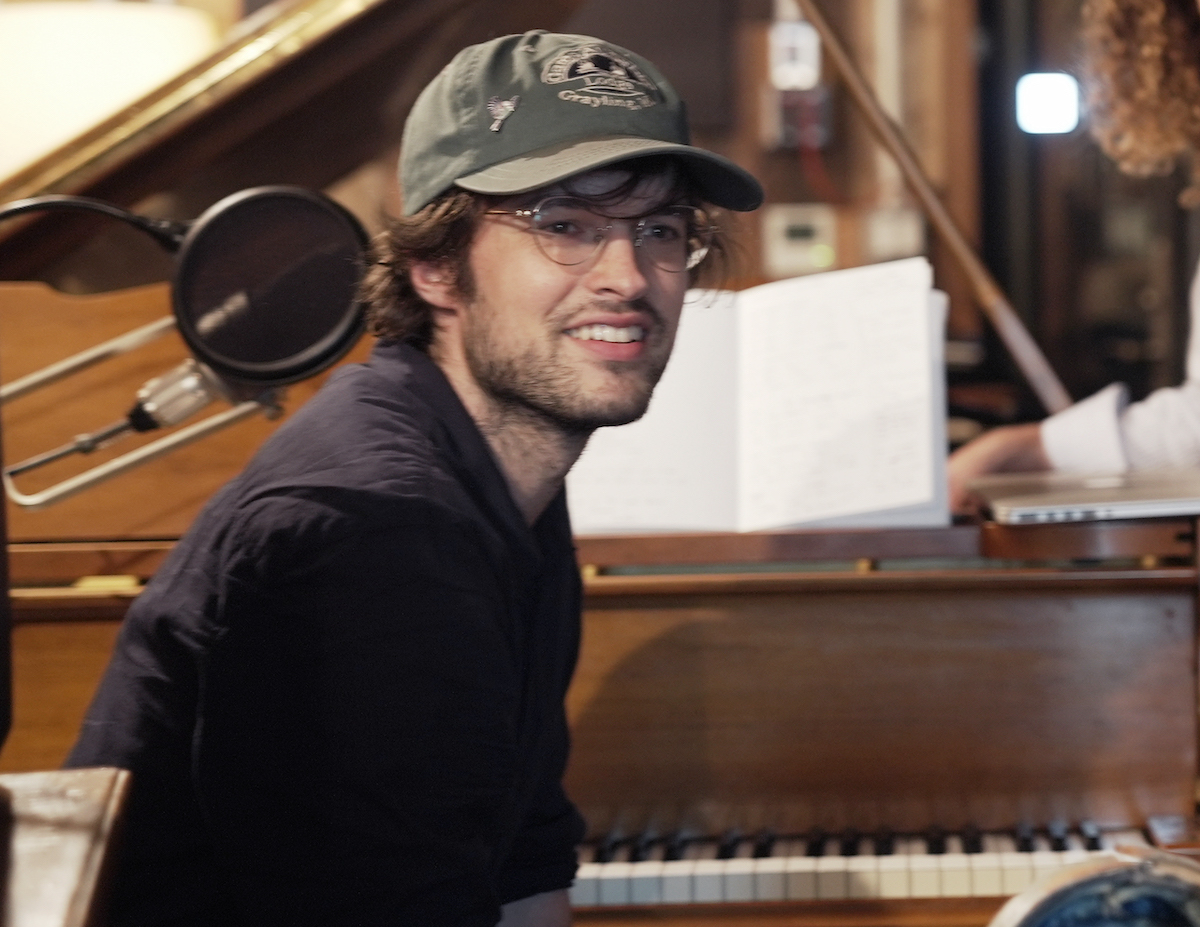
I love the way you think about that. Going through similar emotions myself, I can't say that I've responded in such thoughtful ways.
John Rossiter: Oh me either! Thats the thing. The album after this, which I’ve already written and recorded, is diving into the the more complicated ways I’ve dealt with things that are not chill, or relaxed, or healing, but are the opposite of that you know?
For a little less than 15 years of my life, I was just drinking a lot, smoking cigarettes, doing whatever drugs, and that was what I thought would be healing. I’m curious about those things, too. It’s only recently I’ve been able to start parsing through the shame and grief that I feel over those experiences and those times in my life, maybe integrate it slowly. Shepard Head is maybe creating a bit of that internal space, because I need to go into the fvcking scary places. But I’ll need to retreat to somewhere when I do.
Is the end result what you expected when you first envisioned this project? Or has it surprised you?
John Rossiter: Yeah, I think I feel the most well adjusted that I’ve been in releasing an album. In the past, I think I’ve been really vulnerable to the ups and downs and reception. Even if it’s effusive praise, I would look for the negative in it.
Now it’s totally understandable if people just don’t like it, or they have qualms with certain moments. I think the thing that I’ve noticed is-it’s brought some comfort to people. And that’s really important, because it brought comfort to me.
— —
:: stream/purchase Shepherd Head here ::
— — — —

Connect to Young Jesus on
Facebook, Twitter, Instagram
Discover new music on Atwood Magazine
? © Brit Marling
:: Stream Young Jesus ::

